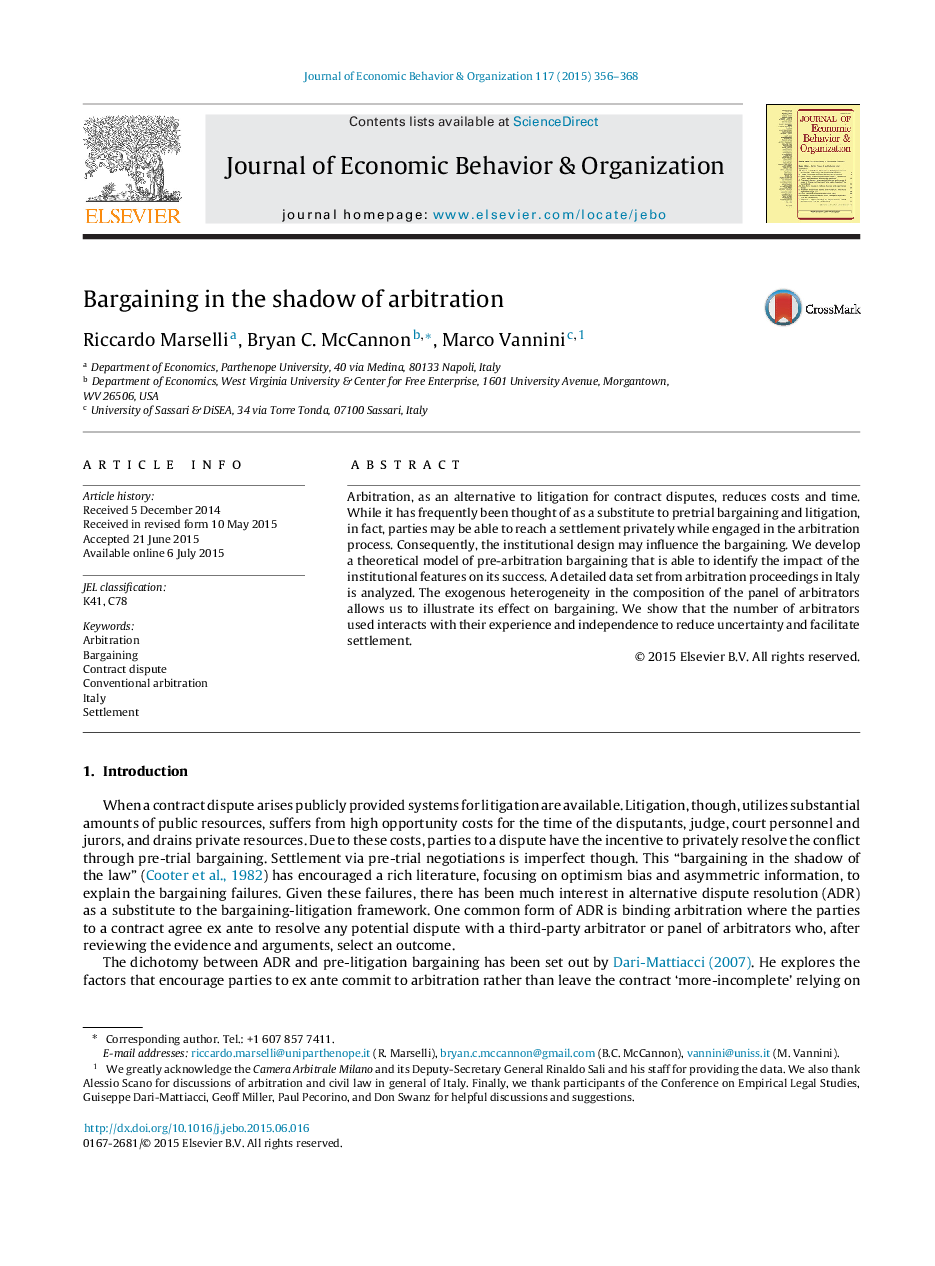| Article ID | Journal | Published Year | Pages | File Type |
|---|---|---|---|---|
| 7243083 | Journal of Economic Behavior & Organization | 2015 | 13 Pages |
Abstract
Arbitration, as an alternative to litigation for contract disputes, reduces costs and time. While it has frequently been thought of as a substitute to pretrial bargaining and litigation, in fact, parties may be able to reach a settlement privately while engaged in the arbitration process. Consequently, the institutional design may influence the bargaining. We develop a theoretical model of pre-arbitration bargaining that is able to identify the impact of the institutional features on its success. A detailed data set from arbitration proceedings in Italy is analyzed. The exogenous heterogeneity in the composition of the panel of arbitrators allows us to illustrate its effect on bargaining. We show that the number of arbitrators used interacts with their experience and independence to reduce uncertainty and facilitate settlement.
Keywords
Related Topics
Social Sciences and Humanities
Economics, Econometrics and Finance
Economics and Econometrics
Authors
Riccardo Marselli, Bryan C. McCannon, Marco Vannini,
